Jiaao He
A Roadmap for Big Model
Apr 02, 2022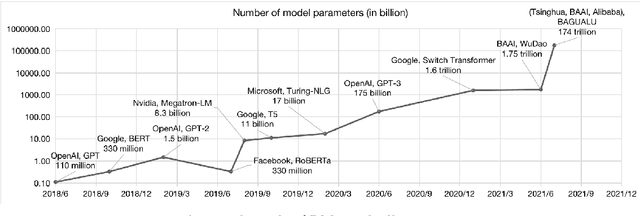

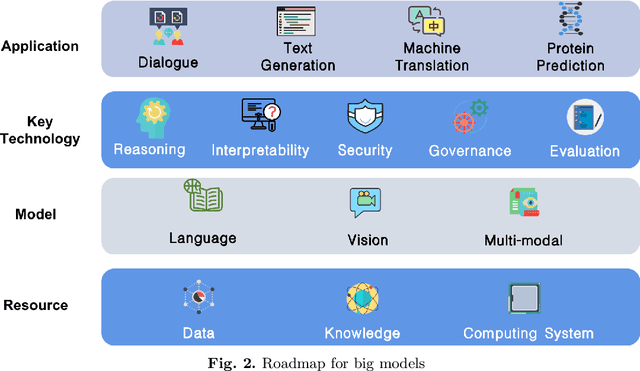
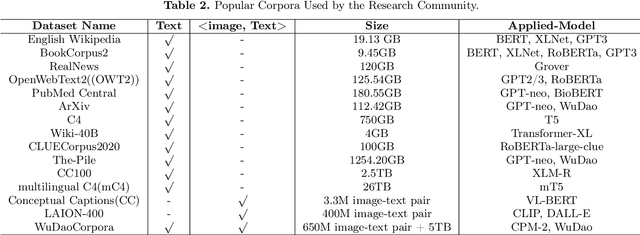
Abstract:With the rapid development of deep learning, training Big Models (BMs) for multiple downstream tasks becomes a popular paradigm. Researchers have achieved various outcomes in the construction of BMs and the BM application in many fields. At present, there is a lack of research work that sorts out the overall progress of BMs and guides the follow-up research. In this paper, we cover not only the BM technologies themselves but also the prerequisites for BM training and applications with BMs, dividing the BM review into four parts: Resource, Models, Key Technologies and Application. We introduce 16 specific BM-related topics in those four parts, they are Data, Knowledge, Computing System, Parallel Training System, Language Model, Vision Model, Multi-modal Model, Theory&Interpretability, Commonsense Reasoning, Reliability&Security, Governance, Evaluation, Machine Translation, Text Generation, Dialogue and Protein Research. In each topic, we summarize clearly the current studies and propose some future research directions. At the end of this paper, we conclude the further development of BMs in a more general view.
FastMoE: A Fast Mixture-of-Expert Training System
Mar 24, 2021
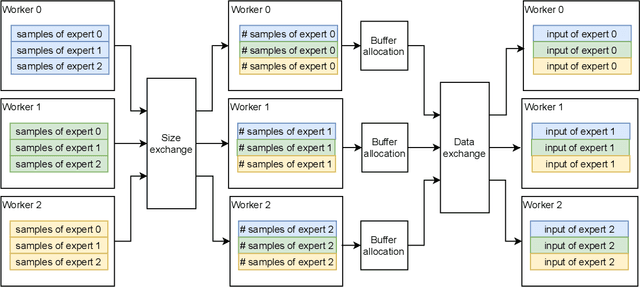


Abstract:Mixture-of-Expert (MoE) presents a strong potential in enlarging the size of language model to trillions of parameters. However, training trillion-scale MoE requires algorithm and system co-design for a well-tuned high performance distributed training system. Unfortunately, the only existing platform that meets the requirements strongly depends on Google's hardware (TPU) and software (Mesh Tensorflow) stack, and is not open and available to the public, especially GPU and PyTorch communities. In this paper, we present FastMoE, a distributed MoE training system based on PyTorch with common accelerators. The system provides a hierarchical interface for both flexible model design and easy adaption to different applications, such as Transformer-XL and Megatron-LM. Different from direct implementation of MoE models using PyTorch, the training speed is highly optimized in FastMoE by sophisticated high-performance acceleration skills. The system supports placing different experts on multiple GPUs across multiple nodes, enabling enlarging the number of experts linearly against the number of GPUs. The source of FastMoE is available at https://github.com/laekov/fastmoe under Apache-2 license.
Heterogeneity-Aware Asynchronous Decentralized Training
Sep 17, 2019
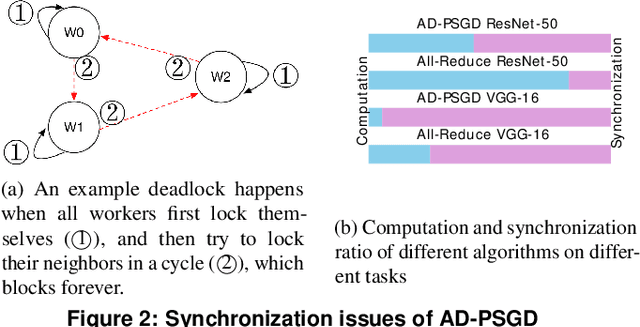
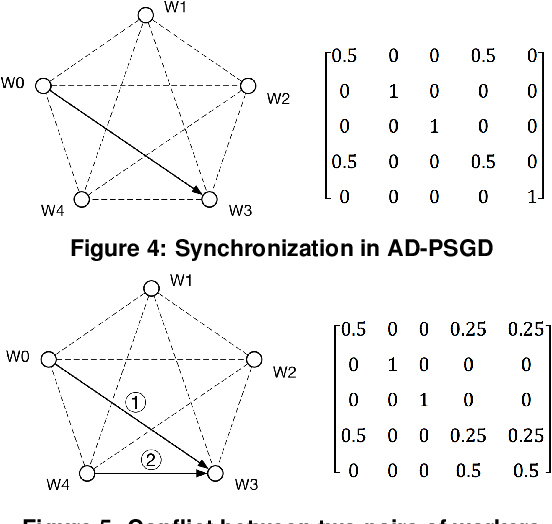
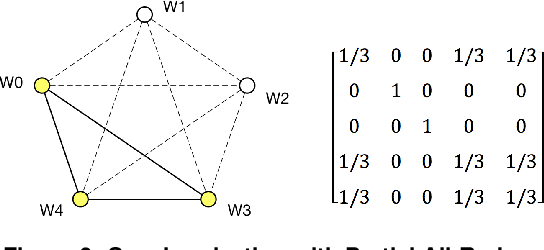
Abstract:Distributed deep learning training usually adopts All-Reduce as the synchronization mechanism for data parallel algorithms due to its high performance in homogeneous environment. However, its performance is bounded by the slowest worker among all workers, and is significantly slower in heterogeneous situations. AD-PSGD, a newly proposed synchronization method which provides numerically fast convergence and heterogeneity tolerance, suffers from deadlock issues and high synchronization overhead. Is it possible to get the best of both worlds - designing a distributed training method that has both high performance as All-Reduce in homogeneous environment and good heterogeneity tolerance as AD-PSGD? In this paper, we propose Ripples, a high-performance heterogeneity-aware asynchronous decentralized training approach. We achieve the above goal with intensive synchronization optimization, emphasizing the interplay between algorithm and system implementation. To reduce synchronization cost, we propose a novel communication primitive Partial All-Reduce that allows a large group of workers to synchronize quickly. To reduce synchronization conflict, we propose static group scheduling in homogeneous environment and simple techniques (Group Buffer and Group Division) to avoid conflicts with slightly reduced randomness. Our experiments show that in homogeneous environment, Ripples is 1.1 times faster than the state-of-the-art implementation of All-Reduce, 5.1 times faster than Parameter Server and 4.3 times faster than AD-PSGD. In a heterogeneous setting, Ripples shows 2 times speedup over All-Reduce, and still obtains 3 times speedup over the Parameter Server baseline.
 Add to Chrome
Add to Chrome Add to Firefox
Add to Firefox Add to Edge
Add to Edge